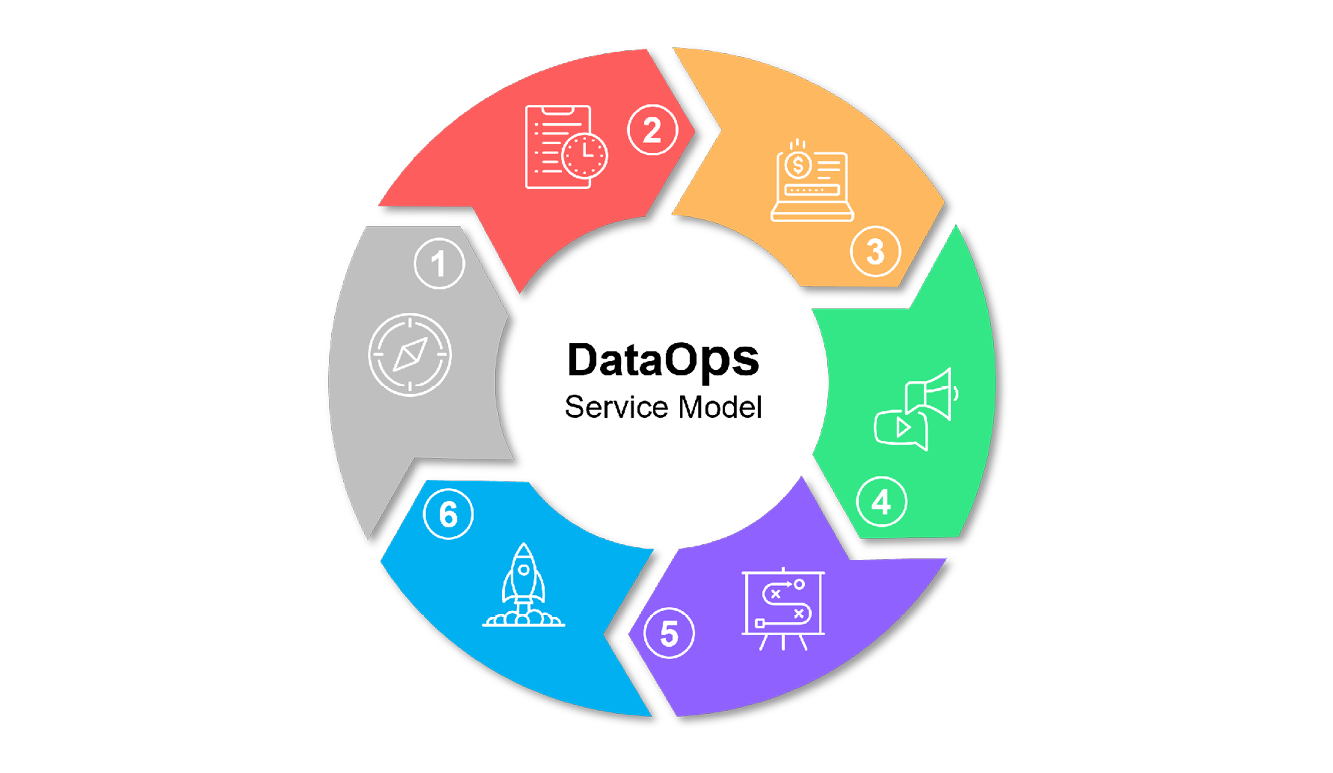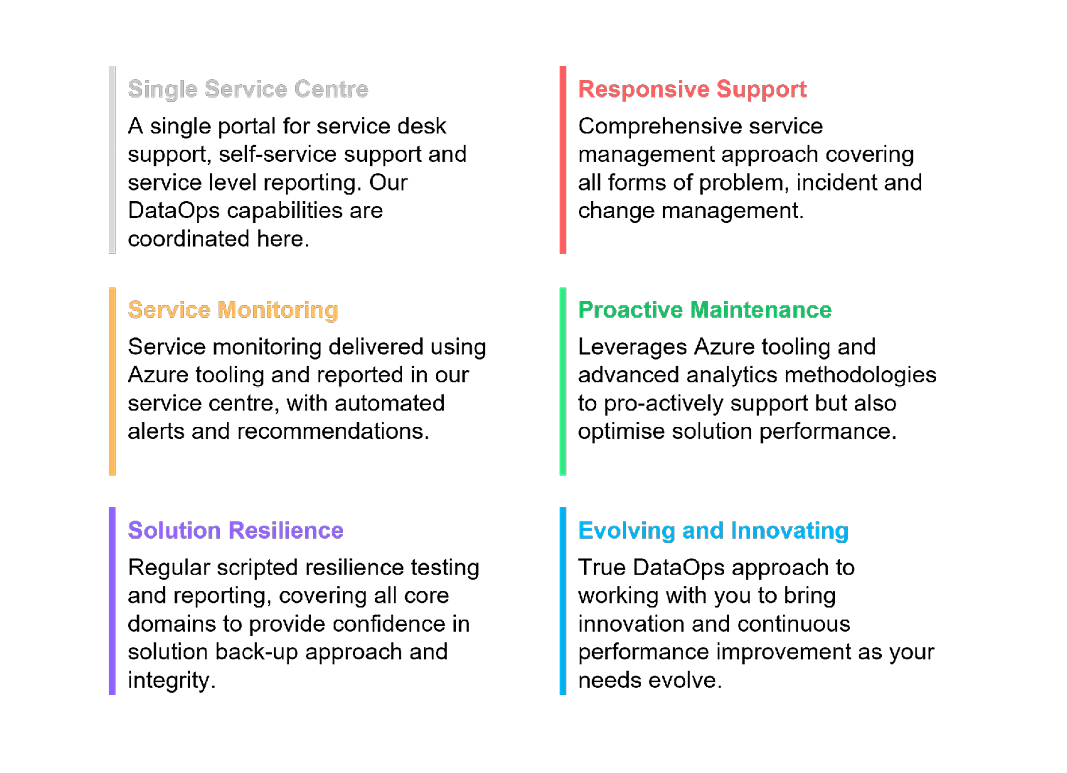
Why are we talking about DataOps and what do we mean?
The organisations Agilisys works with increasingly recognise the value of their data as an asset for better decision making and improving performance. At the same time, advances in technology and the way we all create and interact with data has meant two things: 1. The volume and velocity of the data we are working with […]
The organisations Agilisys works with increasingly recognise the value of their data as an asset for better decision making and improving performance. At the same time, advances in technology and the way we all create and interact with data has meant two things:
1. The volume and velocity of the data we are working with is growing exponentially
2. The tools at our disposal to drive value from that data are getting more powerful every day
In turn, this means we can no longer rely on a one-and-done approach to data management and exploitation. We can’t build a platform and consider it “done”. We need to maintain what we have so that decision makers can trust and rely on it, while at the same time continuously evolving and improving our approach (and the underpinning architectures) to meet the ever-changing requirements of our stakeholders.
This is a challenge for our customers. Sourcing the skills and simply creating the headspace to think this through may sound simple on the face of it, but when set against the day-to-day pressures of BAU, we are finding data and business leaders are looking for new solutions.
This is where the concept of DataOps comes into its own, not just managing a service but owning and refining it, proactively improving the data platform.
DataOps can be thought of as a combination of people, process and technology capabilities designed to enable both development and operations (DevOps) activity across the data lifecycle. DataOps services span each touch point, from integration of disparate data sources to modelling and transformation, or from analytics and insight to data asset retention. Typically, it is provided as an ongoing service, with agile engineering and automation techniques baked into the delivery model. This shortens the time to value and drives efficiencies, enabling teams to focus their effort where it is needed most.
DataOps: Why is it needed?
DataOps can reduce current and future risks, deliver value to users and leaders, and ensure confidence in the data and technology being consumed. Critically, it enables organisations to grow alongside new technology as a team, developing and sharing key knowledge and skills.
DataOps: How can it help?
DataOps has been built on driving the adoption of technology and efficiency using data to achieve success. DataOps will return clear value and benefits, the top five of which are detailed below.
How is Agilisys approaching DataOps?
Our DataOps service has been carefully designed to optimise service management workflows, leveraging automation wherever possible to deliver a professional service and enable our highly skilled architects and engineers to focus their effort on continuously improving both solution and service levels. The diagram below sets out the key elements of our DataOps service management approach.


What are the top five DataOps Benefits?
1. Improved Efficiency
DataOps helps to understand and simplify an organisation’s data estate, iterate ownership, and automate management. DataOps aims to improve efficiency by delivering faster data of higher quality, whilst keeping it reliable and operating as effectively as possible.
2. Clear Governance
DataOps can shape each organisations data landscape into a single governed process. It also endeavours to put the usage of automation upfront, reducing the number of user requests and manual activity before value can be seen from multiple operations.
3. Technology Assessment
As DataOps is looking after the estate, it gives focus and the ability to expand into new technology applications, aiding the delivery of a conformed security model, reduced data leakage and improved consistency. With DataOps delivering better quality of data, it helps to unlock the value of organisational data, unleashing the potential of multiple disciplines and teams, and opening investment opportunities into new technology areas such as AI and Data Science.
4. Support Business Demands
Teams feel confident supporting the demands of the business such as new products and services and provide a consistent and reliable service. Data teams can then return business value through self-serve processes that facilitate better decisions and improved outcomes.
5. Business Growth
Teams will start to learn new skills and start to think of the whole estate rather than specific areas. They will learn from others and are able to evaluate new technology to help the business grow. It then gives leaders the ability to install a culture of excellence and trust. DataOps can advise on the skills required for future growth to help align your recruitment strategy to that of the technology.
Can you add DataOps to a current Data Platform?
With DataOps currently being researched by many organisations, one key question I am being asked is, “Can you integrate DataOps to our existing Data Platform?” The answer to this is simple: “Yes!”.
With DataOps being the support around the whole data estate, the Agilisys team can create a bespoke DataOps offering to suit most needs. With our expert knowledge of Azure applications and data, we can support your DataOps needs to enable your organisation to grow. With our DataOps service you can trust us to look after the data estate, along with communicating key recommendations to leverage the power of Azure to your current platform. We can also help support further advanced specialisms with our AI and Data Science services.
How can Agilisys Help?
Our customers are realising the benefits of DataOps by improving their data strategies, enabling the build of AI and data analytics. Agilisys can work with you to define your DataOps requirements and tailor the most suitable approach. We thrive on promoting ownership of your estate and enabling organisations to innovate in this ever-changing technology landscape. Please get in touch to discuss further.





